Gardening with native plants this spring
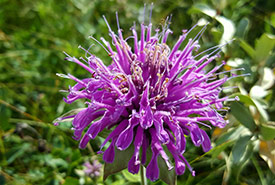
Wild bergamot (Photo by Sarah Ludlow/NCC staff)
I love to garden. I excitedly begin planning for the next year as soon as the autumn chill settles over the Prairies. I’m always impatient for spring to arrive, and it doesn't help when the seed catalogues start arriving in November. I find...
Invasive, shrimp-sucking parasite continues northward Pacific expansion
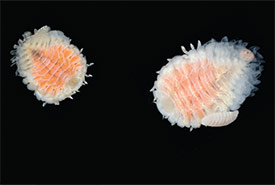
The cough drop-sized parasite Griffen's isopod, native to Asia and Russia, has decimated mud shrimp populations along the West Coast. The parasite on the right is a female with the much smaller male attached. (Florida Museum photo by Amanda Bemis and Gustav Paulay)
By Josh Silberg and Natalie van Hoose Researchers have identified an invasive, blood-sucking parasite on mud shrimp in the waters of British Columbia’s Calvert Island. The discovery represents the northernmost record of the parasite on the...
Backpack Essentials: Don’t let the ticks bite!

Backpack Essentials (Image by NCC)
This blog post is part of the Backpack Essentials series, a series that explores the items that Nature Conservancy of Canada (NCC) staff carry with them when heading outside. It is inspired by the quarterly Nature Conservancy of Canada Magazine...
The clock is counting down: It’s time to have a tick talk
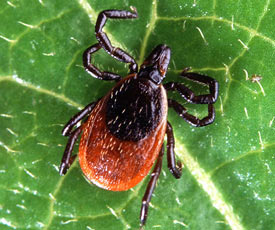
Adult deer tick (Photo by Scott Bauer/Wikimedia Commons)
Whenever I hike with my non-naturalist friends, I give them the usual safety spiel: wear long sleeves and long pants, stay hydrated, watch for poison ivy and nettles, and bring along some bug spray. But, as of late, I find myself adding a fifth...
Don’t trust lady’s-slippers (if you’re a bee)
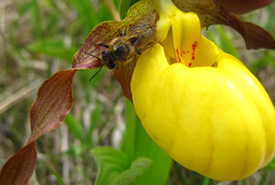
This honeybee was tricked into pollinating this yellow lady’s-slipper. (Photo by Steven Anderson/NCC staff)
Before I began working at the Nature Conservancy of Canada (NCC), I spent six years studying the pollination of two species of lady’s-slipper orchids in Manitoba and the northern U.S. While I no longer spend all of my time thinking about...
Saving the bees: Plants to help our buzzing buddies
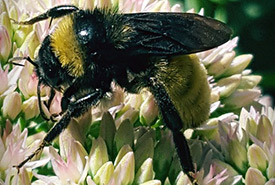
American bumble bee (Photo by K.S. Gardener/iNaturalist)
Humans have a very delicate relationship with bees. Despite their importance, many of us fail to understand just how much bees impact our daily lives — and how much we’re putting them at risk. Canada has over 850 native bee species,...
Enlighten yourself about species that glow
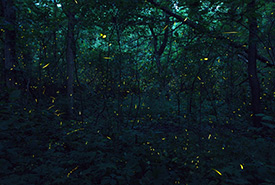
Fireflies (Photo by Zach Baranowski CC BY-NC-ND)
I had my first encounter with a “glow-in-the-dark” species when I was a child. My parents and I were visiting relatives in St. Catharines, Ontario, and we were in their backyard enjoying the warm, summer evening. In the distance, I...
What ash trees and bumble bees are telling us

American bumble bee (Photo by K.S. Gardener/iNaturalist)
Black ash and American bumble bee are not species I thought we would ever need to save. When I started my studies in conservation over 25 years ago, bumble bees still seemed commonplace, and I thought of ash as a common tree that was great for...
Dr. Crayfish, I presume?
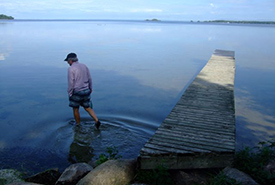
Premek Hamr, PhD (a.k.a. Dr. Crayfish) (Photo courtesy of Premek Hamr, PhD)
At the Nature Conservancy of Canada's annual Ontario Region staff meeting last May, a few of us stepped outside to wander the shoreline of Lake Simcoe and admire the sunset. As we rooted around the rocky beach, I took a few photos of plants and...
Ten of nature's weirdest courtship rituals
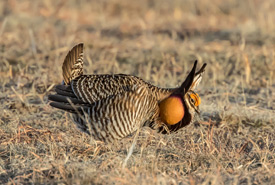
Greater prairie chicken (Photo by Ron Knight/Wikimedia Commons)
Much like humans, other animals have evolved ways of wooing or courting potential mates, whether it’s singing a love song, doing a sensual dance or giving a thoughtful gift. With love in the air this Valentine’s Day, here are 10...

